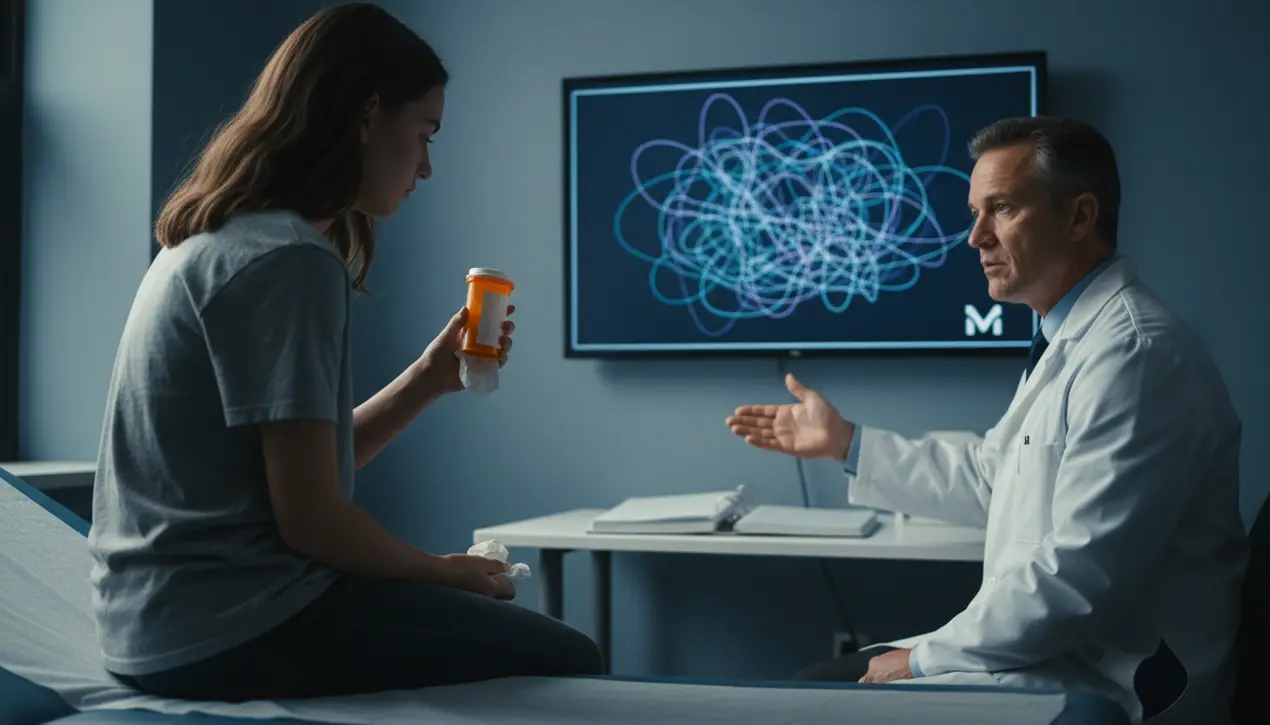
Politicsgovernments & cabinetsPolicy Agendas
The Politicization of Antidepressants: A Public Health Crisis
AN
Anna Wright
21 hours ago7 min read4 comments
A complex public health issue is being reframed as a political battleground, as the national conversation around antidepressant use moves from the doctor's office into the ideological arena. Prescriptions for SSRIs, such as Lexapro and Prozac, have risen dramatically among adolescents and young adults, with one study showing a 64 percent increase—a trend particularly pronounced among teen girls and LGBTQ+ youth that reflects a generation reporting heightened levels of distress.This surge in treatment coincides with the growing influence of the Make America Healthy Again (MAHA) movement, which has positioned these medications as a symbol of a flawed system. Leading this charge is Health and Human Services Secretary Robert F.Kennedy Jr. , whose rhetoric has shifted the focus from clinical evidence to political contention.He has repeatedly advanced the baseless claim that antidepressants are linked to mass shootings, a correlation thoroughly debunked by research showing that only about 4 percent of perpetrators had any history with the medication. This is more than a factual error; it is a dangerous stigmatization that risks deterring vulnerable individuals from seeking care.Further muddying the waters is his assertion that discontinuing SSRIs is more difficult than quitting heroin, a provocative but misleading analogy that conflates withdrawal symptoms with chemical addiction. While withdrawal, experienced by an estimated 15 percent of users, can be challenging and include symptoms from dizziness to severe emotional distress, these medications do not produce the cravings or compulsive use that define addictive substances.The political narrative obscures a nuanced medical reality: for many, these drugs are lifesaving, while for others they can cause side effects like emotional blunting or prove ineffective. Even the FDA's legitimate scientific inquiry into SSRI use during pregnancy has been pulled into this politicized vortex, despite professional medical bodies affirming that the risks of untreated depression typically outweigh potential neonatal concerns.The central question MAHA poses—whether these drugs are overprescribed—is valid and warrants careful, evidence-based discussion. However, the movement's tactic of seeding doubt without a scientific foundation risks causing real-world harm.It fosters a culture of fear that can isolate people from necessary treatment, transforming a personal health decision involving therapy, community support, and sometimes medication into an ideological conflict. The legacy of 'Prozac Nation' was a cultural examination of pharmaceutical intervention; today's climate feels less like an examination and more like a war, with those in need of care caught in the crossfire.
#antidepressants
#mental health
#RFK Jr
#MAHA movement
#healthcare policy
#political debate
#featured
Stay Informed. Act Smarter.
Get weekly highlights, major headlines, and expert insights — then put your knowledge to work in our live prediction markets.
Comments
Loading comments...
© 2025 Outpoll Service LTD. All rights reserved.